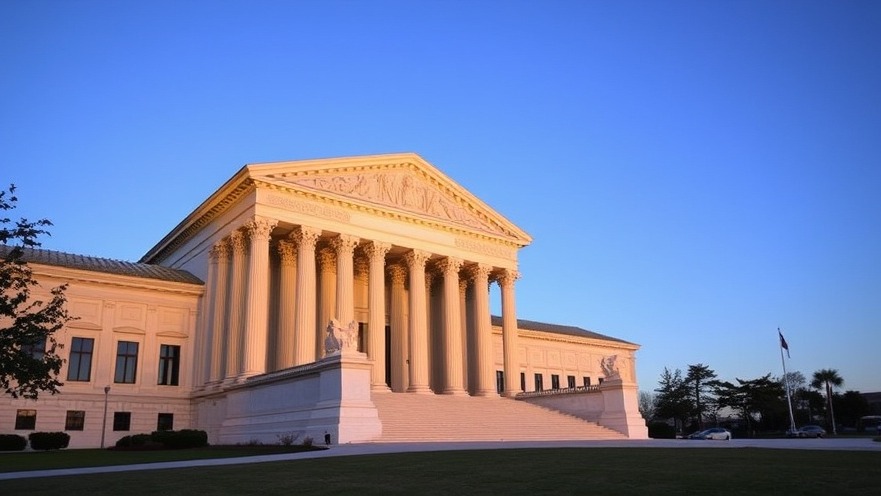
The Supreme Court’s Determination: A Landmark Moment for Texas
On June 18, 2025, the U.S. Supreme Court made a pivotal decision by ruling that Tennessee’s ban on gender-affirming care for minors is constitutional. With a 6-3 verdict, the ruling holds profound implications not just for Tennessee, but also sets a precedent for similar laws, including Texas’ ongoing ban on gender-affirming treatments for minors. The court has effectively green-lighted conservative policies that are gaining traction across multiple states, with Texas at the forefront.
Understanding the Ruling and Its Consequences
The Supreme Court's ruling emphasized that such bans do not violate the Equal Protection Clause of the U.S. Constitution, as stated by Chief Justice John Roberts. He highlighted that decisions regarding medical treatments should be left to those elected to represent the public's interest, promoting a state-level autonomy over healthcare policies. The ruling sends a clear message: states like Texas, which has implemented strict bans on treatments like hormone therapy and puberty blockers, can proceed with such legislation despite the medical community's support for these treatments.
Impact on Families and Minors in Texas
For many LGBTQ+ Texas families, the ruling is devastating. Attorneys representing trans youth express concern about the loss of not just medical options but also the hope that these young individuals might have had regarding their futures. Some families have opted to leave Texas entirely to access necessary medical treatments, viewing them as life-saving. This situation is creating an urgent need for clarity on what options remain for families navigating these new laws.
Scientific Backing Versus Political Opinions
The ongoing debate surrounding gender-affirming treatments often polarizes opinions between scientific evidence and deeply held political beliefs. Major medical associations endorse these treatments, asserting their effectiveness in easing gender dysphoria, a condition where one’s assigned gender does not align with their experienced gender. However, opponents, including Texas officials, argue that these treatments are untested. Justice Clarence Thomas has even cast doubt on the credibility of medical experts, suggesting they are biased.
The Road Ahead: Legislative Implications and Community Reactions
The Supreme Court's decision has emboldened Texas lawmakers. Following the ruling, there is little incentive for elected officials to pursue moderation or alternatives regarding gender-affirming treatments. This is concerning for trans activists and families alike, who fear a rollback of rights and protections, which may lead to further legislative actions against the LGBTQ+ community in Texas and other states.
Connecting to Broader Trends: A Nationwide Response
The implications of this ruling extend beyond Texas. Approximately two dozen states have implemented similar bans or are poised to do so. As these laws proliferate, advocacy groups are mobilizing to challenge these restrictions through state-level grassroots campaigns and legal actions. There is also a movement to foster awareness and support for transgender rights across the country, aided by the stark contrast between states that embrace inclusivity versus those that adopt exclusionary policies.
Community Support and Moving Forward
Despite the Supreme Court’s ruling, organizations are working tirelessly to provide support for families affected by these laws. By rallying allies and expanding outreach efforts, activists are striving to create a sense of hope and resilience. This community solidarity is crucial as families navigate the implications of legislative decisions that impact their children’s health and well-being.
Final Thoughts: A Call for Advocacy and Awareness
This ruling serves as a catalyst for ongoing discussions around rights for transgender youth. It reflects broader tensions in society regarding healthcare, parental rights, and the decision-making power of the state versus the family. Engaging in dialogue, raising awareness, and advocating for comprehensive healthcare access are necessary steps forward. For those who are concerned about these developments, it is vital to stay informed and involved in local advocacy efforts to push back against harmful legislation.
 Add Element
Add Element  Add Row
Add Row 



Write A Comment